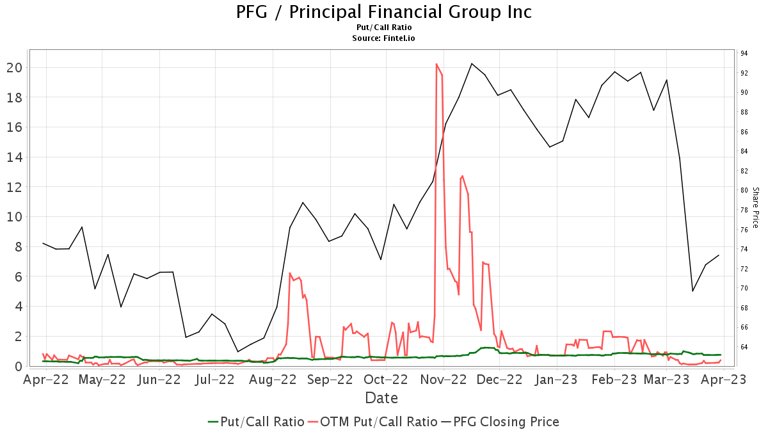Faster, Cheaper Housing In Canada: The Rise Of Modular Homes

Table of Contents
The Speed Advantage of Modular Homes
One of the most significant benefits of modular homes is their speed of construction. This accelerated timeline directly addresses the urgent need for more housing in Canada.
Faster Construction Times
Modular construction dramatically reduces overall build time compared to traditional methods. This efficiency stems from several key factors:
- Factory Production: The majority of the construction takes place in a controlled factory environment, protecting against weather delays and allowing for parallel construction processes.
- Parallel Construction Processes: While the foundation is being prepared on-site, the home's modules are simultaneously built in the factory, maximizing efficiency.
- Weather-Independent Building: Factory construction eliminates delays caused by inclement weather, a common problem in many parts of Canada.
- Reduced On-Site Labor: Much of the labor-intensive work is completed in the factory, minimizing on-site labor time and costs.
A typical modular home can be constructed in a fraction of the time compared to a site-built home, often ready for occupancy within weeks or months, significantly faster than traditional methods.
Streamlined Construction Process
The entire modular construction process, from initial design to final completion, is streamlined for efficiency.
- Detailed Planning: Meticulous planning and design in the initial stages minimize errors and rework later on.
- Precise Manufacturing: Factory precision ensures components fit perfectly, reducing on-site adjustments and delays.
- Less On-Site Waste: Pre-fabrication minimizes material waste compared to traditional construction where material cutting and fitting occurs on-site.
- Fewer Delays: The controlled factory environment eliminates delays caused by weather, material shortages, or labor issues.
The precision of factory-built components minimizes errors and rework, leading to a smoother and more efficient construction process, resulting in faster project completion.
Cost-Effectiveness of Modular Housing
Beyond speed, modular housing offers significant cost advantages, making it a highly attractive option for many Canadians seeking affordable housing solutions.
Lower Labor Costs
Factory-based production significantly reduces labor costs.
- Controlled Environment: The factory environment allows for specialized, skilled labor to focus on specific tasks, improving efficiency and reducing overall labor hours.
- Skilled Labor Specialization: Workers in a factory setting can specialize in specific tasks, leading to increased proficiency and reduced errors.
- Reduced On-Site Labor Needs: Less on-site labor is required, reducing labor costs and associated overhead.
Modular homes often benefit from lower labor costs due to the efficient, factory-based production and reduced need for skilled on-site labor.
Material Efficiency and Waste Reduction
The controlled factory environment contributes to significant material savings.
- Precise Cutting and Fitting: Precise cutting and fitting of materials in the factory minimizes waste.
- Less Material Waste: The efficient use of materials translates to lower overall costs for the builder and the homeowner.
- Sustainable Building Practices: Reduced waste aligns with sustainable building practices, benefiting the environment and potentially reducing costs further through material recycling programs.
The precise nature of modular construction significantly reduces material waste, leading to cost savings for both the builder and the homeowner.
Potential for Reduced Transportation Costs
Strategic placement of modular home factories near transportation hubs can minimize transport costs for materials and completed modules. This optimization further enhances the cost-effectiveness of this building method.
Quality and Customization of Modular Homes
Many have concerns about the quality and customization options available with modular homes. However, modern modular construction effectively addresses these concerns.
Quality Control and Inspections
Rigorous quality control measures ensure high-quality modular homes.
- Strict Adherence to Building Codes: Modular homes adhere strictly to all relevant building codes and regulations.
- Multiple Inspections: Multiple inspections are conducted throughout the construction process in the factory, ensuring quality at every stage.
- High-Quality Materials: Builders typically use high-quality materials, ensuring the longevity and durability of the finished home.
Modular homes undergo rigorous quality control checks throughout the manufacturing process, ensuring high standards and adherence to building codes.
Design Flexibility and Customization Options
Despite being prefabricated, modular homes offer extensive design flexibility.
- Variety of Sizes and Layouts: Homeowners can choose from a variety of sizes and layouts to suit their needs and preferences.
- Customizable Interior Finishes: A wide range of interior finishes allows for personalization, enabling homeowners to create their dream home.
- Diverse Architectural Styles: Many manufacturers offer various architectural styles, allowing for aesthetic customization.
Despite their prefabricated nature, modular homes offer substantial design flexibility, allowing homeowners to customize their homes to their specific needs and preferences.
Environmental Benefits of Modular Construction
Modular construction offers several environmental advantages.
Sustainable Building Practices
Modular construction often incorporates sustainable practices.
- Reduced Waste: Minimized material waste significantly reduces the environmental impact of construction.
- Use of Recycled Materials: Many manufacturers utilize recycled materials where possible, further reducing the environmental footprint.
- Energy-Efficient Insulation: Modular homes often incorporate energy-efficient insulation, leading to lower energy consumption.
- Incorporation of Renewable Energy Technologies: Features like solar panels can be easily integrated into the design, further enhancing sustainability.
Modular construction often lends itself to the use of sustainable building materials and energy-efficient design, contributing to a smaller environmental footprint.
Conclusion
Modular homes offer a compelling solution to Canada's housing crisis. Their speed of construction, cost-effectiveness, high quality, customization options, and environmental benefits make them an increasingly attractive choice for those seeking affordable and sustainable housing. Faster construction times compared to traditional site-built homes mean quicker occupancy and reduced project timelines. Lower labor and material costs contribute to significant savings, while rigorous quality control and customization options ensure a high-quality, personalized living space. Finally, sustainable building practices minimize the environmental impact.
Ready to explore the benefits of faster, cheaper housing? Consider the advantages of modular homes for your next project. Research local modular home builders in Canada and begin your journey to affordable and sustainable homeownership. Learn more about the possibilities of prefabricated homes and factory-built homes to find the perfect solution for your needs.

Featured Posts
-
 Principal Financial Group Pfg Stock 13 Analyst Ratings Analyzed
May 17, 2025
Principal Financial Group Pfg Stock 13 Analyst Ratings Analyzed
May 17, 2025 -
 Private Equity Acquires Boston Celtics For 6 1 Billion Impact On The Team
May 17, 2025
Private Equity Acquires Boston Celtics For 6 1 Billion Impact On The Team
May 17, 2025 -
 Mati Donalda Trampa Khto Bula Meri Enn Maklaud
May 17, 2025
Mati Donalda Trampa Khto Bula Meri Enn Maklaud
May 17, 2025 -
 Is Jackbit The Best Crypto Casino For Bitcoin In 2025
May 17, 2025
Is Jackbit The Best Crypto Casino For Bitcoin In 2025
May 17, 2025 -
 Ben Mc Collum Joins Iowa After Successful Season At Drake
May 17, 2025
Ben Mc Collum Joins Iowa After Successful Season At Drake
May 17, 2025
